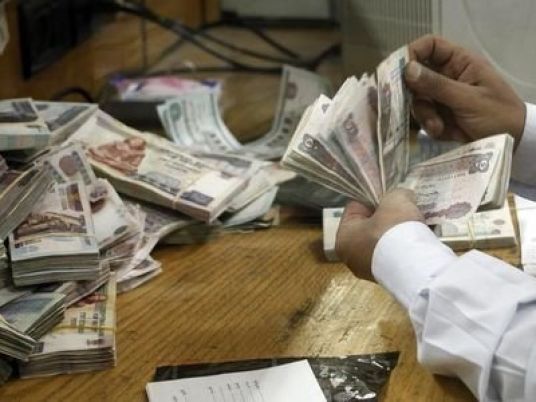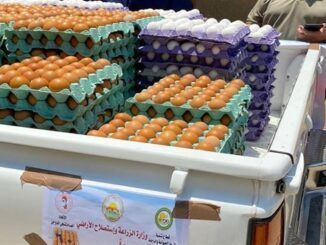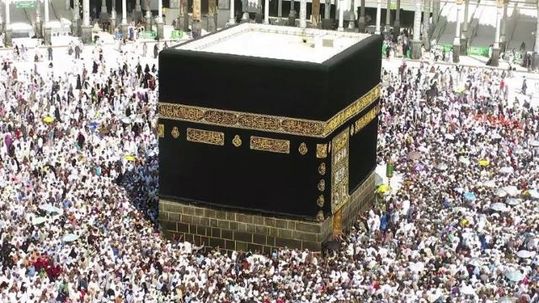
As the Egyptian economy struggles, small and big businessmen will turn to underground traders to fulfill the hard currency shortage and their foreign exchange needs, as reported by Wall Street Journal.
The Wall Street Journal said in its article titled, “As Egypt Struggles, a Black Market Emerges for Dollars”, that the black market will flourish as long as Egypt’s main sources of hard currency dry up. Despite attempts by authorities to clamp down, Egypt’s black market provides a critical spigot for dollars and euros to buy such essentials as medicines and wheat.”
It has also documented several hard currency trading in the black market among different social classes. A man sells suitcases and handbags out of a small shop in a working-class suburb of the Egyptian capital. But at the same time, he also delivers U.S. dollars stashed in plastic bags once a rate is agreed to over the phone.
In addition, the head of investor relations at Ezz Steel Co., Kamel Galal, said, “the country’s biggest steelmaker by output must obtain much of its foreign currency through what he calls the parallel market.” He said, “It has been quite a heavy burden when it comes to actual payments.”
In recent months, Egyptian authorities have shut dozens of foreign-exchange bureaus to ease the pressure on its currency. The government also has approved jail terms and higher fines for breaking foreign-exchange regulations. Still, currency dealers who have been forced underground offer a substantial premium on the dollar.
Kamal, the suitcase salesman, said, “It’s more like drug trafficking,” He said, “There is a lot of risk, but also good money.”
Egypt has been facing one of its worst economic crises in its history as tourism sector and foreign investment -the two major sources of hard currency- have withdrawn due to political instability and terrorist attacks.
The number of tourists in July was 42% lower than the year-earlier period. According to official statistics, the number of tourists has dropped by nearly 50% since a Russian jetliner was downed by a terrorist bomb in October, killing all 224 on board.
Moreover, foreign-exchange reserves are down by half to about $15.5 billion at the end of July.
As a result, Cairo turned to the International Monetary Fund (IMF) for a $12 billion loan over three years. In the same context, Egypt is in discussions with other agencies, including the World Bank and African Development Bank, for more funding to help plug a funding gap that authorities estimate at $21 billion over the coming three years.
Also this month, a United Arab Emirates aid agency, the Abu Dhabi Fund for Development, said it deposited $1 billion in Egypt’s central bank to shore up the country’s finances and currency.
However, these steps aren’t enough to rescue Egypt from its problems. According to the World Bank, Egypt’s economy is expected to expand at about 4% this year “which is not fast enough for a country where inflation hit 14% last month and the rate of unemployment is in double-digit percentages, according to the country’s statistical bureau,” said WSJ.
In this context, the slow improvement pace of the economy and the need for hard currency will increase the deals in the black market. As a result,the expected emergency cash infusions have barely slowed the Egyptian pound’s decline against the dollar.
“Last week some dealers were offering to buy the dollar for about 12.3 pounds each, nearly a 40% premium over the official rate of 8.88 that the central bank has held steady since devaluing the currency in March. At the same time, dealers were selling the dollar for roughly 12.7 pounds each,”reported WSJ.
The pound has continued to decline largely because many economists and ordinary Egyptians remain skeptical the government can hit its financial targets and implement tough overhauls.
According to WSJ, “Abdel Fattah Al Sisi, who has cracked down on political opponents and sought to fend off a spate of terror attacks, recently acknowledged the difficulty implementing overhauls to turn around the economy.”
In an interview with editors-in-chief of state-run newspapers this month, Al-Sisi said, “The size of the challenge is beyond imagination, and the responsibility of tackling it does not fall on my shoulders alone, but is the responsibility of all Egyptians.” He added, “The future of the nation is at stake.”
In fact, Egypt is facing many economic challenges as well as a probable political and public resistance to its economic reform projects ahead the IMF deal.
Over the next three years, the Egyptian government is aiming to raise a total of $21 billion, but analysts at Fitch Ratings said this month that Egypt’s total financing needs could be closer to $10 billion annually. And it needs to introduce measures that Egypt’s largely poor and middle class of 90 million people are expected to resist.When it reached a preliminary loan deal with the IMF, Egypt also agreed to cut government debt, introduce a value-added tax, reduce energy subsidies and move to a flexible exchange rate.
Karachi-based Bilal Khan, a senior economist for the Middle East, North Africa and Pakistan at Standard Chartered Bank, said,“We believe these measures will significantly raise the political costs of reform.” He added, “As such, we expect Egypt’s socioeconomic situation to worsen before it gets better.”
Among the risks of Egypt’s economic reform project the weak currency, subsidy cuts and tax overhauls are higher inflation and the possibility of interest-rate increases, which would increase Egypt’s borrowing costs and further weigh on Egyptians already struggling to cope with a sluggish economy.



